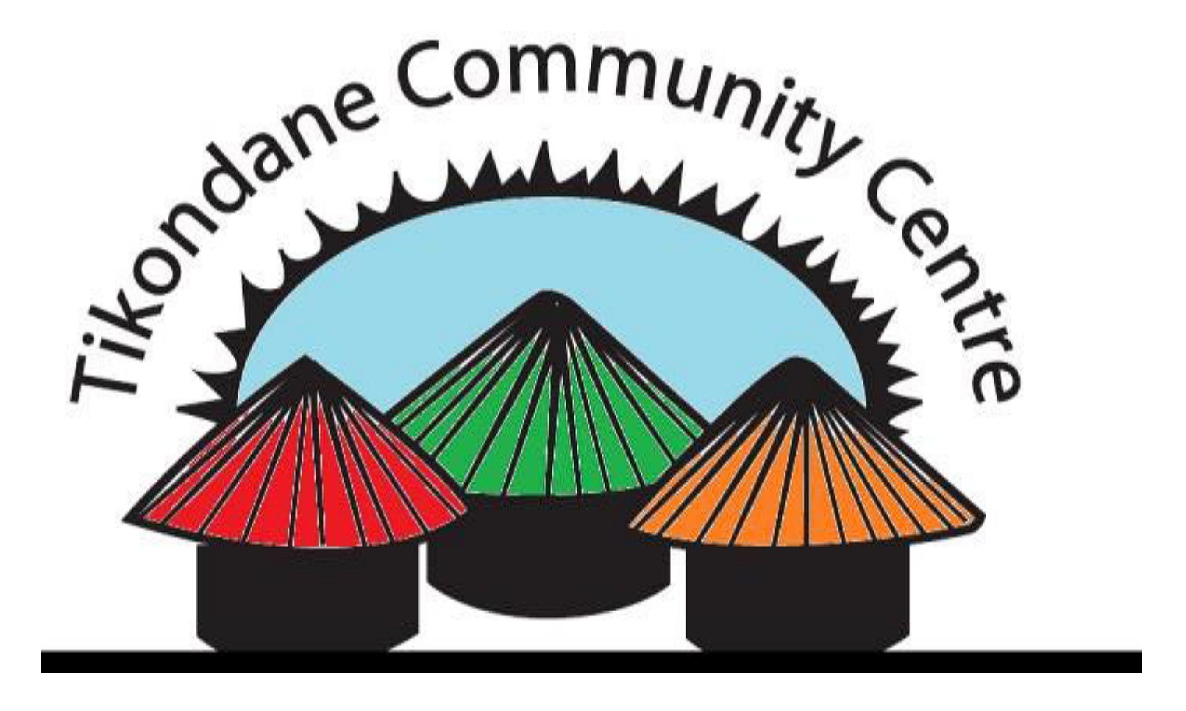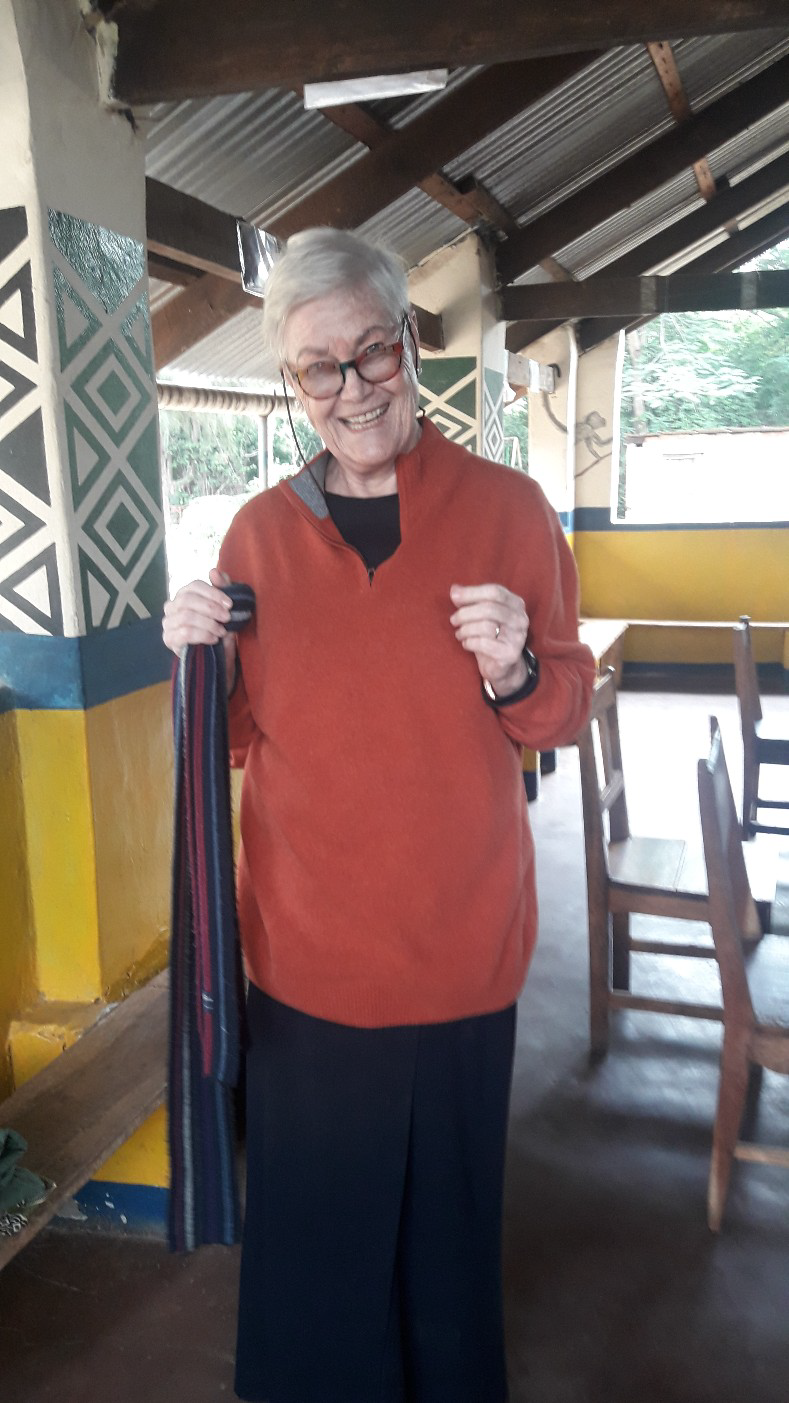I haven’t been this excited before a trip for a long time. After the forced three-year break due to Covid 19, I could finally revisit the “Tikondane Community Centre” project in Katete (Zambia), which is supported by the Zambia/Fair Trade AG. I was accompanied by Lilly Persch and Maxine Woskobojnik, two students at our school.
Many colleagues, friends and acquaintances had equipped me with suitcases, mountains of clothes, technology and other urgently needed things, so that I had about 66 kg of luggage on our flight to Sambia and only a small travelling bag on the flight back. I also carried the monetary donations for the project with me: €5,000 from the Tiko-Support- Group at our school, €5,000 from other sponsorship associations we cooperate with, and €1,440 collected by a crowdfunding organization that is helping Tiko to realize smaller individual projects.
Of course, my primary concern was the general development of the Tiko project, but also the latest social, economic and political landscape in Sambia. In addition to huge debts, Zambia is suffering massively from the global consequences of the war against Ukraine. Price hikes, especially for energy and staple foods, have a particular impact on people’s lives, as they account for the lion’s share of people’s expenses. Just during our stay, prices increased, in some cases significantly.
We spent our first two nights in the capital, Lusaka. I was amazed by how much the city has grown in the last three years. Allegedly 20% of the Zambian population are living in Lusaka. For most people from the countryside, Lusaka is the place of longing that promises social advancement and a good life. But this doesn’t work out for many of them.
On the outskirts we have seen many impressive estates, each safely gated, with large garden areas and a number of luxury cars. The corresponding infrastructure, i.e. restaurants and shopping centers, was plentiful. Where have all these rich people come from?
The city center, of course presents a totally different side of Lusaka – the local markets were impressive as always.
When we finally arrived in Tiko, we were welcomed most warmly. It was nice to see old acquaintances again and to be in this wonderful place. I was touched by the overwhelming reception after three years of absence – even Chef Edison, now 86 years old and exceedingly reserved, turned to me and asked “Will you stay with us?”.
As always, we met many other interesting guests: tourists, volunteers, students or trainees who were doing practical phases of their studies or training in Tiko. Thus, a group came into being that did a lot of planning, acting, discussing and having fun together.
From the latest newsletters I had already learned that the working hours of the Tiko-Crew had to be shortened, resulting in less income, because the project cannot maintain the old standard due to the almost complete absence of guests for two years because of COVID and currently due to the general price increase and lower amount of donations. We are talking about monthly incomes between 20 and 75 €… At the weekly management committee meeting where the responsible persons of all Tiko departments get together, it was announced that the next payment of salary or allowance has to be partly in the form of chickpeas.
Some of Tiko’s buildings show some signs of aging, but Tiko still has its typical flair. The water and electricity supplies were pleasingly reliable this time. Since tourists have been largely absent in recent years, most of the rooms have been rented to students attending classes at the nearby St. Francis Hospital.
Given the poor economic situation it felt somehow strange to be able as a guest to afford the food at the Tiko restaurant (which of course also provides income to the project), while the employees working there have problems to feed their (extended) families. Working only half-day shifts they don’t get lunch. However, Tiko still pays for the education of their children.
On the tour around Tiko I could see what has changed. From the newsletter I knew that Tiko is trying to create a reliable source of income with the production of chicken feed and also with breeding chickens for sale, in order to be able to subsist independently in the near future and on the long run in spite of declining income from donations and funding.
During a visit to a project in Uganda, Elke learned a low-cost method of producing chicken feed in a natural and climate-friendly way. The proteins essential for the chicken feed are supposed to be provided by the larvae or maggots of the “Black soldier fly” . This harmless fly lays an enormous number of eggs, that hatch into maggots after a short time. The maggots feed on organic waste, especially manure. Mixed with other ingredients such as corn husks, they provide good and inexpensive chicken feed.

Tiko is still experimenting with making various adjustments, e.g. food for the larvae or duration of feeding) to optimize the production processes. Temperatures must also be taken into account. During our stay it was exceptionally cool, so the flies were reluctant to reproduce. Another type of food to be cultivated are a kind of algae.
In addition, Tiko has purchased a facility to raise chickens. The laying hens and the chickens for consumption which can be raised cheaply on Tiko’s inexpensive chicken feed (see above) are hoped to guarantee a regular income. This is basically a reasonable idea. But in my view it is put at risk by the high inflation, the rising energy prices (for heat lamps, incubator etc …) at a time when the demand is sinking. in the end, the chickens must be sold – at a profit. If not they still have to be fed… Towards the end of our stay, it was decided not to hatch any more eggs for the time being because of the currently low demand, but to consume them instead.


The youngest children are still among the most important and cherished concerns of Tikondane. The Early Childhood Education classes are lovingly cared for by the Tiko teachers and well prepared for Primary School.
During our stay, a volunteer from the U.S. evaluated several young children to determine the current nutritional situation. For this purpose, she measured and weighed village children and also sponsored for 2 months the supply of Onenepa, the special children’s food developed in Tiko, which contains everything that is important for a healthy upbringing. Unfortunately, no permanent sponsorship for the Onenepa project has materialized as yet.

Elke, head of Tikondane, the other volunteers and I have worked hard on IT and fundraising issues. Some volunteers started to collect ideas and material for postings on different social media channels. Tiko crew members are to continue these to achieve more awareness and support for Tiko. In addition, the crowdfunding platform Donorsee is to be used systematically for the development of individual income generating projects, as Tiko is no longer able to afford the support it used to provide so far.
This is because Tiko’s financial situation is very bad. With the money I brought, the next two months will be secured, but afterwards the outlook is bad, because many previous sponsorships have been discontinued. Therefore, Tiko is trying even harder to start income generating activities. But in view of the necessary financial and technical requirements and at the same time the low purchasing power in the area, the search for a model that really works is proving difficult.
Unresolved, yet always present is the question of succession. There is one person who could take over from Elke, namely Mustapher, who has already worked in or for Tiko for some time. He also has some businesses of his own and has taken up a political position. I got to know him a bit better over lunch at his home. He has good insight in the complexity of Tiko, knows what needs to be done and has developed appropriate ideas for implementations and solutions. Moreover he enjoys respect among the Tiko staff. However, it remains to be seen whether he is willing to commit himself to the Tiko project in the near future and on the long run.

One of my best experiences was going to see Doris, who has been with Tiko from the beginning. She knows barely to read and write and has little English, but she is one of the most thoughtful and helpful people in Tiko. She lovingly raises countless children of her extended family. With great devotion she takes care of her garden and tries her hand at implementing all the new projects and cultivation methods that Tiko is suggesting.

All in all, my visit at Tiko has been very impressive once again. Tiko is a great project that gives perspectives to quite a lot of people who otherwise would not have any chances in life, a project that helps people in real need. The big question, however, remains how the project can be maintained in the near future as well as the long run, both in terms of staff and financing.
Jens Augner, July 2022


